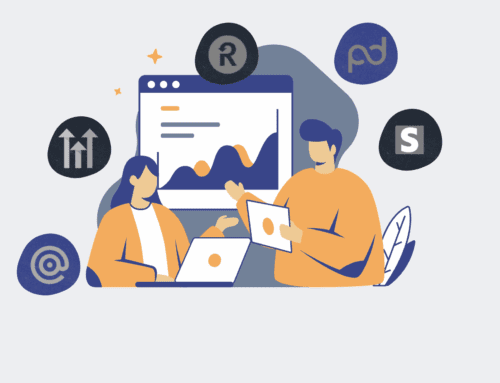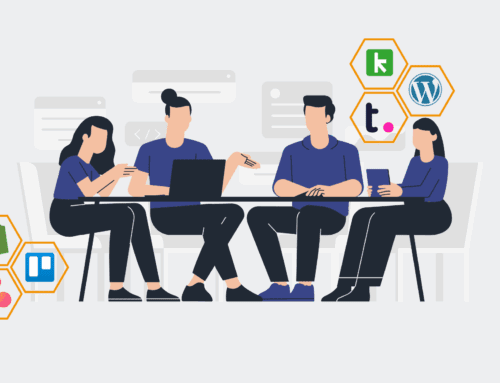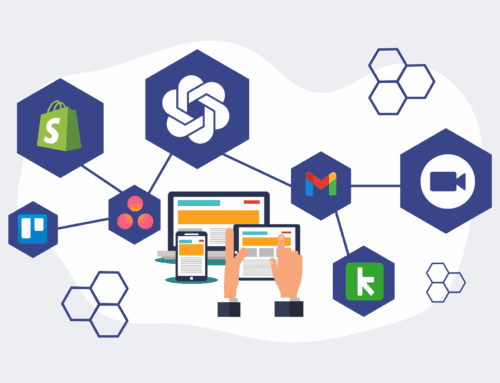6 Ways AI-Powered Automation is Revolutionizing HR & Recruiting
The landscape of human resources and recruiting is undergoing a seismic shift, driven by the rapid evolution of AI and automation technologies. For HR leaders, COOs, and recruitment directors, the traditional operational model—burdened by manual data entry, repetitive screening, and administrative overhead—is no longer sustainable in a competitive talent market. The promise of AI isn’t just about efficiency; it’s about strategic transformation, enabling teams to move from reactive firefighting to proactive, data-driven talent management. At 4Spot Consulting, we continually see how high-growth B2B companies, those generating $5M+ ARR, are leveraging these advancements not just to cut costs but to enhance the candidate experience, improve employee retention, and ultimately, drive revenue growth. This isn’t about replacing human judgment but augmenting it, freeing up valuable HR and recruiting professionals to focus on high-impact strategic initiatives that truly move the needle. From automating initial candidate outreach to streamlining complex onboarding processes, the applications are vast and offer a clear path to saving up to 25% of your day, eliminating human error, and achieving unprecedented scalability. This article explores six critical areas where AI and automation are delivering tangible, transformative results for modern HR and recruiting functions.
1. Intelligent Candidate Sourcing & Screening
One of the most time-consuming and labor-intensive aspects of recruiting is the initial sourcing and screening of candidates. Manually sifting through hundreds, if not thousands, of resumes for each role is not only inefficient but highly susceptible to human bias and oversight. AI-powered automation revolutionizes this process by leveraging natural language processing (NLP) to analyze job descriptions and candidate profiles with unparalleled speed and accuracy. Systems can be configured to scan vast databases, job boards, and professional networks to identify candidates whose skills, experience, and even cultural fit align precisely with the requirements. Beyond keyword matching, advanced AI can interpret context, identify transferable skills, and even predict success based on historical data patterns. This means recruiters receive a highly qualified, pre-vetted shortlist, drastically reducing the time spent on unqualified applications. For instance, using platforms like Make.com, we’ve helped clients integrate AI tools that automatically parse resumes, extract key data points, and then score candidates against custom criteria, syncing this enriched data directly into their CRM (like Keap or HighLevel). This systematic approach ensures no top talent slips through the cracks due to a missed keyword and allows recruitment teams to engage with promising candidates almost immediately, offering a significant competitive advantage in tight talent markets. It transforms a reactive, manual task into a proactive, intelligent funnel.
2. Automated Candidate Engagement & Communication
Maintaining consistent and personalized communication with candidates throughout the hiring funnel is crucial for a positive candidate experience, yet it often falls short due to recruiter bandwidth limitations. AI and automation step in to bridge this gap, ensuring timely, relevant, and engaging interactions at scale. From automated acknowledgment emails upon application receipt to personalized updates on application status, AI-driven chatbots and communication platforms can handle a significant portion of routine candidate queries. These systems can answer FAQs about the company, benefits, or the hiring process 24/7, reducing the administrative burden on recruiters and providing immediate satisfaction to candidates. Beyond reactive responses, automation can power proactive outreach, such as sending reminders for interview schedules, providing pre-interview preparation materials, or delivering personalized content about the company culture. For example, by integrating tools with AI capabilities, we can set up workflows that trigger specific email sequences or SMS messages based on a candidate’s progress stage, ensuring they feel valued and informed without requiring constant manual intervention from the recruitment team. This level of consistent, intelligent engagement not only improves the candidate’s perception of your organization but also significantly reduces ghosting and enhances offer acceptance rates, ultimately streamlining the entire recruitment lifecycle.
3. Predictive Analytics for Talent Management & Retention
The power of AI extends far beyond simply finding and hiring talent; it’s becoming indispensable for understanding and retaining it. Predictive analytics, driven by AI algorithms, allows HR leaders to anticipate future talent needs, identify potential flight risks, and understand the factors contributing to employee satisfaction and dissatisfaction. By analyzing historical employee data—including performance reviews, compensation, tenure, engagement survey results, and even external market data—AI can identify patterns and correlations that human analysis would likely miss. This enables organizations to forecast staffing requirements based on business growth projections, preemptively address skill gaps, and proactively intervene with employees at risk of leaving. For instance, an AI system might flag that employees in a particular department with a specific tenure often leave if they haven’t received a promotion or salary review within a certain timeframe. Armed with this insight, HR can implement targeted retention strategies, such as development programs or compensation adjustments, before a valuable employee decides to look elsewhere. This shifts HR from a reactive, crisis-management role to a strategic, proactive function, capable of optimizing workforce planning and significantly impacting employee lifetime value and organizational stability.
4. Streamlining Onboarding and Offboarding Processes
Onboarding and offboarding, while critical, are often fraught with manual paperwork, fragmented communication, and redundant tasks. This not only creates a poor experience for new hires or departing employees but also introduces significant operational inefficiencies and compliance risks. AI-powered automation can transform these processes into seamless, personalized, and highly efficient workflows. For onboarding, automation can trigger the creation of necessary accounts (email, HRIS, project management tools), distribute welcome packets, assign mandatory training modules, and even schedule initial meetings with managers and team members. Think of a new hire receiving their personalized IT setup instructions, benefits enrollment forms, and an introduction to their mentor, all automatically sent and tracked based on their start date. Similarly, for offboarding, automation ensures all necessary steps are completed: account deactivation, equipment retrieval, final pay processing, and exit interview scheduling. This minimizes risk, ensures compliance, and provides a respectful and structured departure experience. By using platforms like Make.com to connect HRIS with other critical systems (like IT, finance, and learning management systems), 4Spot Consulting helps businesses automate these complex multi-departmental sequences, eliminating manual checklists and ensuring nothing is missed, thereby significantly reducing administrative burden and human error.
5. AI-Powered Interview Scheduling & Preparation
The back-and-forth of interview scheduling is a notorious time sink for recruiters, hiring managers, and candidates alike. Coordinating calendars, navigating time zones, and sending multiple confirmation emails can consume hours for each hire. AI-powered automation solves this by integrating directly with calendars and applicant tracking systems (ATS) to provide a seamless scheduling experience. Candidates can select available time slots directly from an automated email, and the system automatically books the interview, sends confirmations, and even distributes video conferencing links. Beyond scheduling, AI can assist in interview preparation. Some advanced tools can analyze job descriptions and candidate resumes to suggest relevant interview questions, ensuring a more structured and unbiased interview process. They can even provide real-time coaching to interviewers, prompting them to ask follow-up questions or ensure specific competencies are assessed. This not only dramatically cuts down administrative time but also improves the quality and consistency of interviews, leading to better hiring decisions. The ability to integrate these scheduling tools with communication platforms, facilitated by automation platforms, means that reminders, rescheduling options, and post-interview feedback requests can all be managed effortlessly, ensuring a professional and respectful candidate experience from start to finish.
6. Enhancing Employee Experience & Internal Support
AI and automation aren’t just for external candidates; they are powerful tools for improving the internal employee experience and HR support functions. Employee self-service portals, often powered by AI-driven chatbots, can provide instant answers to common HR queries regarding benefits, payroll, company policies, and time-off requests. This “always-on” support dramatically reduces the workload on HR teams, allowing them to focus on more strategic initiatives, while simultaneously empowering employees with immediate access to information. Beyond basic FAQs, AI can analyze employee feedback from surveys or internal communication platforms to identify emerging concerns or areas for improvement within the organization. This proactive insight enables HR to address issues before they escalate, fostering a more engaged and positive work environment. Furthermore, automation can streamline internal processes like performance review cycles, training enrollment, and internal mobility programs. For example, automated workflows can prompt managers for performance feedback, remind employees of upcoming training deadlines, or match employees with internal job openings that align with their career aspirations. By reducing friction in these everyday interactions and providing timely, relevant support, organizations can significantly boost employee satisfaction, productivity, and ultimately, retention.
The integration of AI and automation into HR and recruiting is no longer a futuristic concept but a present-day imperative for high-growth businesses. From revolutionizing candidate sourcing and engagement to streamlining onboarding and enhancing the internal employee experience, these technologies offer a strategic advantage that drives efficiency, reduces costs, and fosters a more agile, talent-centric organization. By embracing these advancements, HR and recruiting professionals can shed the burden of repetitive administrative tasks and elevate their role to a truly strategic partnership within the business. This shift is critical for those looking to save valuable time, eliminate human error, and build scalable systems that support sustained growth. At 4Spot Consulting, our OpsMap™ diagnostic is designed to help companies identify these exact opportunities within their HR and recruiting functions, transforming potential into tangible, ROI-driven results.
If you would like to read more, we recommend this article:
If you would like to read more, we recommend this article: Comprehensive HighLevel Data Protection & Instant Recovery for HR & Recruiting









